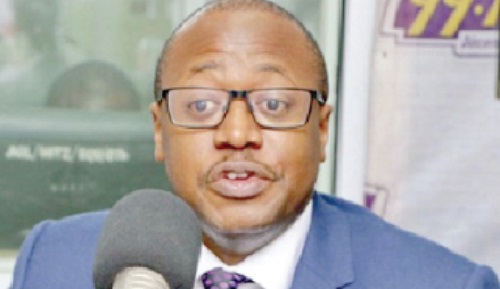
CRC stakeholder engagement: CDD-Ghana raises concerns over high cost of elections - Proposes reforms
The Ghana Centre for Democratic Development (CDD-Ghana) has said it now costs approximately $650,000 (GH¢10 million) to become a Member of Parliament and between $100 million to $150 million to run for President.
It said the high cost of elections in the country has significant implications for the nation’s democracy and development.
This trend, it added, could lead to corruption, undermine accountability, and create an uneven playing field for candidates.
The CDD-Ghana said by addressing these issues, the country could work towards promoting a more transparent and accountable democratic process.
The Director of Programmes and Policy Engagement at the CDD-Ghana, Dr Kojo Pumpuni Asante, said this when he presented proposals from the CDD-Ghana on anti-corruption to the Constitution Review Committee (CRC) yesterday.
The stakeholder engagements form part of the committee’s ongoing review process.
Electoral process
Dr Asante said the electoral process has been corrupted through vote buying from internal political party processes for election of persons to run the political party, selection of candidates for public elections, to the conduct of public elections.
He said the electoral process has been monetised, leading to the capture of political parties by the highest bidder, stifling internal party democracy and meritocracy. He added that political parties have developed internal party rules that fall short of the dictates of the Constitution and almost no serious rules or enforcement to check the corruption of the political process or promote integrity.
Reforms
To curb this, Dr Asante stressed the need to elect leaders with integrity and orient them towards public interest, the disqualification of candidates who breach electoral laws and implementation of clear asset declaration requirements for candidates.
He further suggested the review of governance arrangements for the Electoral Commission, including the appointment process and tenure of non-executive members, to ensure their independence and effectiveness.
“To reset Ghana’s democratic accountability system to its original constitutional promise, reforms must realign incentives across the political class, the public bureaucracy and accountability institutions.
Equally important is enhancing transparency through mandatory publication and reporting obligations across the accountability chain,” he said.
“Fundamentally, the political class tends to view the state as a resource to be exploited for short-term personal or group gain.
They do not see the strength or efficiency of the state as critical to their long-term survival or success as an elite group,” Dr Asante added.
“Ultimately, beyond legal and institutional reforms, there is a pressing need for widespread civic education and cultural re-orientation.
Changing mindset is essential to reduce public tolerance and popular support for corrupt behaviour and to rebuild a governance culture grounded in integrity, service and accountability,” he concluded.
